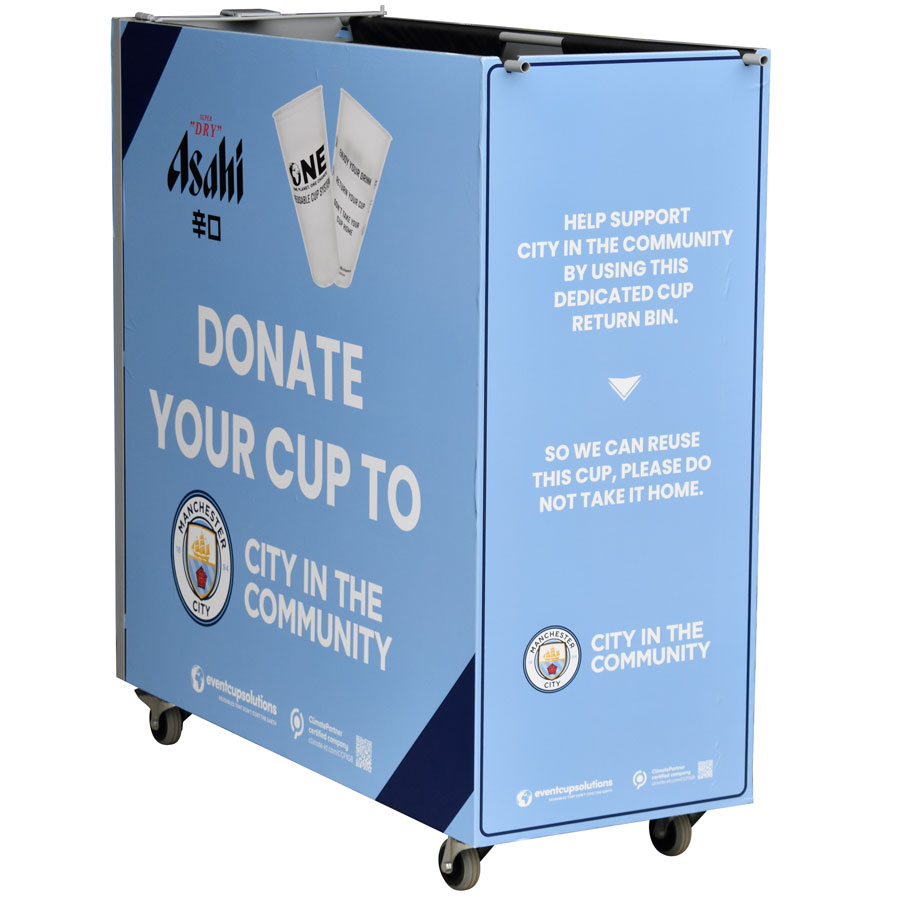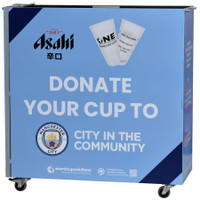29th Nov 2023
In a proactive move to address environmental concerns within the football league and the Premiership, a Handle-iT customer recognized the pressing need to reduce the carbon footprint associated with the consumption of beverages during matches. The prevailing ban on pint glasses in football grounds, a legacy of past violence, prompted the exploration of sustainable alternatives to the prevalent single-use cups, which contribute approximately 75 tons of plastic waste each weekend.

The solution devised by our customer involved the production of reusable plastic pints, offering a significant reduction in waste to a mere 5% of the current levels. Beyond the environmental benefits, this initiative aligns with the corporate responsibilities of football clubs across the UK and Europe. The challenge, however, lay in creating an efficient system for handling these reusable cups during the fast-paced 15-minute halftime break, where a substantial crowd of 80,000 spectators enjoys beverages.
Handle-iT rose to the occasion by developing a specialized "pot holder" trolley designed for quick and easy emptying of cups. With an emphasis on both speed and efficiency, the trolley ensures the timely removal of used cups, addressing the imperative need for seamless operations during halftime. Handle-iT's commitment to efficiency extends to its meticulous attention to health and safety considerations.
Crafted from robust materials using advanced CNC folding and sheet laser cutting techniques, the four-sided cart boasts unparalleled precision. A strategically positioned short side door facilitates rapid cup retrieval, revealing a suspended, waterproof, and fireproof honeycombed bag within the cart. This innovative design allows the plastic pints to be tube stacked inside the honeycomb compartments, optimizing storage space and minimizing the risk of spillage.

The process is streamlined: open the short side door, extract the bag with used cups, and replace it with a fresh bag to accommodate the next round of empties. The used cups are then transported to a dedicated wash area, where they undergo thorough cleaning before being reintroduced into the system, completing the recycling loop.
This eco-friendly solution not only addresses the environmental impact of disposable cups but also exemplifies how innovation in manual handling equipment can contribute to sustainability goals. Football clubs adopting this system not only reduce their ecological footprint but also enhance their operational efficiency and uphold the well-being of staff and spectators. As stadiums increasingly embrace such environmentally conscious initiatives, the amalgamation of manual handling, recycling, and sustainable practices becomes a key focal point in the broader landscape of sports event management.
